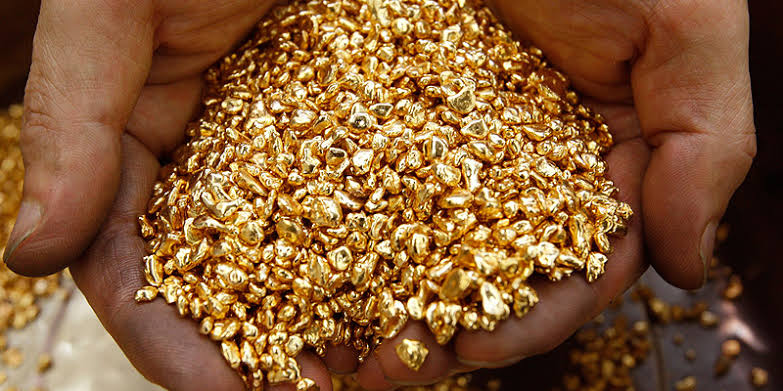Nigeria is a country rich in natural resources, boasting a diverse range of minerals and materials that contribute to its economic growth and development. From oil and gas to gold, coal, and limestone, Nigeria is blessed with abundant reserves of various natural resources. In this article, we will explore the most significant natural resources in Nigeria, where they can be found, and their importance to the country’s economy.
Oil and Gas
One of the most abundant and well-known natural resources in Nigeria is oil and gas. Nigeria has proven reserves of approximately 23 billion barrels of crude oil and 160 trillion cubic meters of gas. These reserves are primarily located in the South-South region of the country, including states like Ondo and Abia. The revenue generated from the oil and gas sector has been a major contributor to Nigeria’s national earnings for several decades.
Gold
Nigeria also has significant deposits of gold, primarily found in the South-Western part of the country. While both alluvial and primary gold deposits exist, the majority of the gold in Nigeria is alluvial. However, the gold mining industry in Nigeria is largely unsanctioned and small-scale, leading to underutilization of this valuable resource.
Bitumen
Bitumen is another natural resource that Nigeria possesses in large quantities. Current analysis suggests that Nigeria has approximately 42 billion tons of bitumen reserves, which is twice the country’s petroleum reserves. Despite this abundance, Nigeria continues to import most of the bitumen used for road construction. The underutilization of such a valuable resource highlights the need for better management and exploitation.
Coal
Nigeria has vast coal deposits, with proven reserves of nearly 3.6 billion tons. However, coal mining and usage have significantly reduced in recent years due to environmental concerns. Although Nigeria’s coal is of the highly bituminous and environmentally friendly type, the country has yet to fully explore the possibilities and potential of this resource.
Iron Ore
Iron ore is another significant natural resource in Nigeria, with deposits exceeding 3 billion metric tons. While Itakpe in Kogi State has the largest reserves, iron ore can be found in various locations across the country. Currently, iron ore mining is limited to Itakpe, with downstream processing taking place in Ajaokuta and Aladja. However, there is still much room for development and expansion in the iron ore processing sector.
Limestone
Limestone is a widely available natural resource in Nigeria, particularly in the South-Western region. With approximately 31 million metric tons of limestone deposits, Nigeria actively harnesses this resource for construction, agriculture, and other purposes. States like Ondo, Ogun, Kaduna, Borno, and Anambra have abundant limestone deposits.
Lead/Zinc
Nigeria’s lead/zinc deposits are estimated to be around 10 million metric tons, with proven reserves closer to 5 million metric tons. This mineral resource has various potential applications, but Nigeria has yet to fully exploit it. The Nigerian government welcomes venture partners to develop the country’s lead/zinc deposits, offering lucrative opportunities for investors.
Tin
Tin is a valuable natural resource in Nigeria, although its availability is somewhat limited. Plateau State is the only state with proven tin reserves, but analysts believe that neighboring states may also have smaller deposits. Tin has multiple uses, including battery production, copper alloy production, and soldering. Exploring and developing tin mining in Nigeria could be a profitable venture.
Clay
Nigeria has billions of tons of clay deposits, making it one of the major natural resources in the country. Clay has various applications, such as pottery, bricks, floor tiles, cement production, and papermaking. Clay deposits can be found in almost every state in Nigeria, and they are relatively inexpensive to extract and utilize.
Bauxite
Bauxite is a solid natural resource that is relatively rare in Nigeria. While it is believed to be available in Plateau, Ondo, Anambra, and Ekiti, only Plateau has proven reserves that remain largely untapped. Bauxite is crucial in manufacturing aluminum, cement, ceramics, and various chemicals. Exploiting Nigeria’s bauxite reserves could contribute to the country’s economic growth.
Salt
Despite Nigeria’s dependence on imported salt, the country has over 1.5 million tons of proven salt reserves. Benue State has rock salt deposits, while Plateau and Ebonyi have salt springs that produce high-quality salt. Harnessing these salt reserves would significantly reduce Nigeria’s reliance on imports and create opportunities for local production.
Tantalite
Tantalite is not one of Nigeria’s most abundant natural resources, but it can be found in significant amounts in select areas of the country. Tantalite is primarily used in manufacturing electrical devices, jewelry, heat-resistant alloys, and various chemical compounds. States like the FCT, Osun, Nasarawa, Kogi, Kwara, and Kano have tantalite deposits.
Marble
Marble is a valuable natural resource that is available in various locations across Nigeria. The mineral is concentrated in the Middle Belt, with states like Abuja, Benue, Delta, Edo, and Plateau having significant deposits. Marble is widely used for interior and exterior decorations, as well as in the production of table tops. Despite Nigeria’s estimated 230 million tons of marble reserves, only a fraction of that is currently being produced.
Granite
Granite, the most common igneous rock on the earth’s surface, is abundantly available in Nigeria. States like Osun, Ekiti, Ondo, Sokoto, and Plateau have significant deposits of granite. Nigeria actively harnesses and utilizes this natural resource due to its low barrier to entry. Granite has various applications in construction and infrastructure development.
Talc
Talc is an underappreciated natural resource in Nigeria, despite its wide range of applications. With over 40 million tons of talc deposits in states like Niger, Kaduna, Osun, and Kogi, Nigeria has a significant abundance of this mineral. However, the country only has one talc plant with limited production capacity. Expanding talc mining and processing could meet local demand and potentially create opportunities for export.
Conclusion
Nigeria is undoubtedly rich in natural resources, with vast reserves of oil and gas, gold, bitumen, coal, iron ore, limestone, lead/zinc, tin, clay, bauxite, salt, tantalite, marble, granite, and talc. However, the country has yet to fully exploit and utilize these resources to their maximum potential. Proper management and investment in infrastructure and technology are crucial to harnessing the economic benefits of Nigeria’s natural resources. By leveraging these resources, Nigeria can diversify its economy, create employment opportunities, and drive sustainable development.






